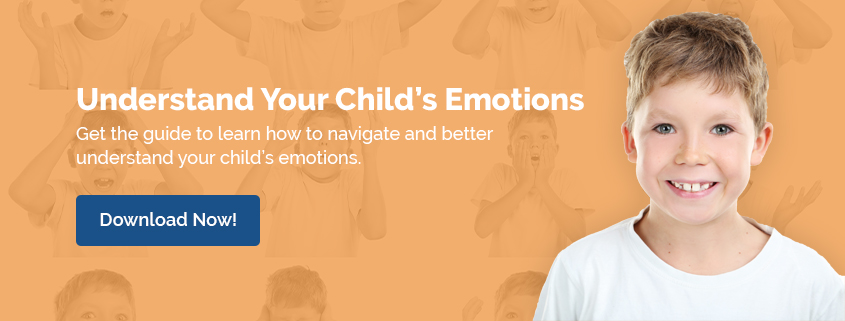What Is A Child Mental Health Evaluation? The Info You Need To Know
When your child struggles in school or at home, it can be difficult to know why. As a parent or caregiver, you may feel overwhelmed and unsure of where to turn for help, so a qualified professional can offer the expert insight that you’re looking for into your child’s mental health needs.
A child mental health evaluation is an avenue to get this important information quickly and accurately so that you can begin developing strategies to help your child overcome whatever challenges they may be facing. Here’s what you need to know.
What is a Pediatric Psychiatric Evaluation?
Mental health problems are treatable medical conditions. A pediatric mental health evaluation is a crucial component to understanding and treating mental health conditions affecting children. With the help of trained mental health professionals, kids with mental health conditions can receive the help they need to live healthy lives.
Psychiatric evaluations are especially important with young children — since they may struggle to explain their feelings and emotions. They might not understand for themselves, let alone be able to verbalize what’s wrong. A mental health assessment helps to determine what is wrong and if the child has any symptoms or signs of a mental illness.
How Do You Know A Mental Health Assessment Is Needed?
A mental health evaluation may be recommended for a child if the caregiver or teacher reports any of the following concerns:
- Behavioral problems/disruptive behavior: Angry, aggressive, or impulsive behaviors can be indicative of a bigger behavioral problem.
- Struggles with learning: If your child has trouble learning in school and doesn’t seem to be making progress, a mental health professional might recommend an evaluation.
- Difficulties making friends or maintaining relationships: If your child has difficulty forming friendships or maintaining healthy relationships with peers, a mental health professional may suggest that your child’s behavior could benefit from speaking with a professional.
- Difficulty understanding social cues: As young children grow up and begin interacting more with others, they need to learn how certain actions are perceived so that they can adjust their behavior accordingly when necessary. Delayed development in this area could signify the presence of a mental health condition.
Common Mental Health Problems in Children
So, you’re considering a mental health assessment; what types of mental conditions are mental health professionals looking for during their initial assessment? While mental health disorders can affect people at any age, some are more common in children.
Anxiety Disorder
Anxiety disorders are extremely common, even in children ages 18 or younger. Children feel pressure in school, family life, and especially in social settings. It’s important to recognize when your child is struggling with stress and anxiety so that they can get the support they need.
Depression
Depression has a lot of different causes, including family history. If your child is sleeping a lot, in a frequent low mood, loses interest in things they care about, and/or has low self-esteem, they may be struggling with depression. Mental health professionals can provide treatment options for your child.
Attention-Deficit/Hyperactivity Disorder (ADHD)
Attention-deficit/hyperactivity disorder (ADHD) is marked by hyperactivity and difficulty focusing, making it hard to determine between the disorder and typical early childhood behavior. ADHD is more than just a child having high energy and a short attention span; it’s a mental health disorder that should be diagnosed and treated.
Developmental Disorders
Intellectual disabilities cause a delay in child development, whether that’s learning in school, learning to read, learning to speak, or learning social skills. For example, dyslexia impacts a person’s ability to read. Teachers and aids in schools are crucial components in providing interventions for overcoming the setbacks of these disorders.
Autism Spectrum Disorder (ASD)
Autism spectrum disorder affects how a person behaves, communicates, interacts with others, and learns. Autism is recognized on a spectrum because it affects people with varying severity and symptoms.
Substance Use Disorder
Adolescents are faced with stress and social pressures often. Unfortunately, in some cases, this leads to substance use. Some may turn to substance use in an attempt to find relief for their mental health problems. Addiction recovery treatments and prevention programs can help your child overcome their substance use disorder.
Interviews About Your Child
Before a pediatric mental health evaluation, you’ll fill out paperwork and provide information about your child. The clinician might ask to talk to people close to your child, including yourself and family members, teachers, school counselors, social workers, or their pediatrician.
The interviewer will ask questions about the child’s behavior, how they interact with other children, how they’re doing in school (both academically and socially), and how they communicate. The clinician will ask questions about your family life, as well as any concerns you may have about your child’s behavior. Be honest and open with the interviewer — it’s best for everyone involved. Honest answers are the only way to provide the proper diagnosis and treatment recommendations to enhance your child’s well-being.
The mental health professional may also ask to review other medical records from their healthcare provider. These records help the interviewer assess symptoms and other physical ailments that can be a sign of mental health problems.
A critical component of this process is reporting any family history of mental disorders. Mental illnesses can be genetic, meaning a child is more likely to develop problems if other family members have had the same issue.
Talking With Teachers
Your child’s teacher is one of the best observers of your child’s behavior. They see firsthand how your child interacts with other children their age in social situations. They also work hands-on with your child, spending hours a day together. They are the first to recognize educational setbacks and potential learning disabilities.
The teacher may have some additional insight into what triggers reactions from your child or why they’re struggling academically. If so, it is helpful for the doctor to know these things to make an accurate diagnosis and treatment plan.
Mental and Physical Health Questionnaires
Interviewing your child may combine both mental health questions as well as physical ones because some mental health issues cause physical symptoms.
Your doctor may order more formal testing, including psychological tests, which help determine various aspects of your child’s personality (like intelligence and emotional functioning).
Psychological testing is an important part of the evaluation process for many reasons. Tests can give you valuable information about your child’s ability to perform well at home and school, how they interact with others, how they feel about themselves (self-esteem), and how they think through problems, among other things.
These tests are typically administered by mental health professional — with all results discussed with you and your child.
Mental Health Services at Meridian
The unknown can be scary when your child needs help with their mental health, but you don’t have to go it alone. Meridian HealthCare can support you and your child with any mental health treatment needed.
For a child mental health evaluation or mental health service, call Meridian HealthCare today.






